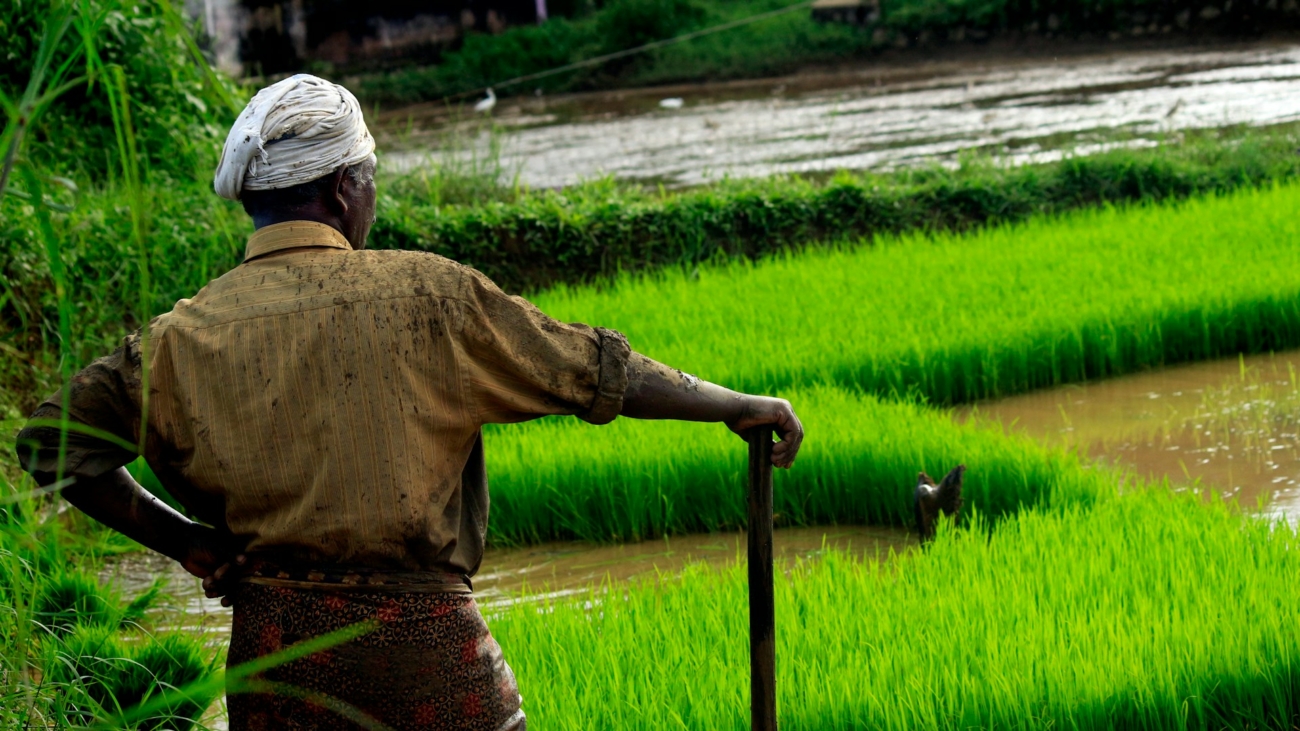Soil health is a foundational element in the agricultural productivity of rice and wheat, two of India’s most critical crops. Healthy soil not only supports robust plant growth but also enhances the resilience of crops against diseases and environmental stresses. As India seeks to bolster its agricultural exports, particularly in the global rice and wheat markets, improving soil health emerges as a pivotal strategy.
The importance of soil health management practices in agriculture cannot be overstated. By focusing on maintaining and improving the biological, chemical, and physical properties of the soil, farmers can achieve higher yields and better quality produce. This, in turn, can significantly enhance India’s competitiveness in the international market, driving economic growth and ensuring food security.
Understanding Soil Health: Key Factors Influencing Rice and Wheat Yields
Soil health encompasses various factors, including organic matter content, nutrient availability, soil structure, and microbial activity. These elements play a crucial role in determining the productivity of rice and wheat crops. Healthy soils with balanced nutrients and good structure enable roots to grow more deeply and access water and nutrients more efficiently. Microbial activity in the soil helps in nutrient cycling, making essential elements available to plants, thereby boosting their growth and yield.
Additionally, the physical properties of soil, such as texture and porosity, influence water retention and drainage, which are critical for rice and wheat cultivation. Well-structured soils prevent waterlogging and provide adequate aeration, facilitating healthy root development. Understanding and managing these soil health factors is essential for farmers aiming to maximize their crop yields and improve the quality of their produce for export.
Innovative Soil Health Management Practices for Rice and Wheat Farmers
Several soil health management practices can significantly improve the productivity of rice and wheat. Crop rotation and cover cropping are effective in maintaining soil fertility and preventing erosion. Crop rotation involves alternating different crops in the same field, which helps break pest and disease cycles, while cover cropping involves growing specific plants to cover the soil, enhancing organic matter and preventing erosion. These practices improve soil structure and nutrient content, benefiting subsequent crops.
No-till farming helps preserve soil structure and organic matter by minimizing soil disturbance, which reduces erosion and enhances water retention. Organic amendments like compost and manure enrich the soil with nutrients and support microbial activity, promoting plant growth. Additionally, integrating biofertilizers and green manures into soil management practices can further enhance soil fertility and crop productivity. Implementing these practices can lead to healthier soils, resulting in higher crop yields and improved quality.
Economic Benefits of Soil Health Investments for Rice and Wheat Exporters
Investing in soil health brings substantial economic benefits to farmers and exporters. Healthier soils lead to increased yields and reduced dependency on chemical fertilizers, lowering production costs. High-quality produce from well-maintained soils fetches better prices in international markets, boosting farmers’ incomes and export revenues. Moreover, sustainable soil management practices contribute to long-term agricultural productivity, ensuring a steady supply for export markets.
The economic advantages extend beyond immediate gains. Improved soil health enhances the resilience of crops to climate variability and extreme weather events, reducing the risk of crop failure and income loss. Furthermore, investments in soil health can attract premium markets that prioritize sustainable and high-quality produce, opening new export opportunities for Indian farmers. These economic benefits underscore the importance of prioritizing soil health in agricultural practices.
Government Policies and Programs Supporting Soil Health in Rice and Wheat Cultivation
Government initiatives play a crucial role in promoting soil health among farmers. Policies and programs aimed at educating farmers about sustainable practices, providing financial incentives for soil health improvements, and supporting research and development are essential. By aligning these policies with the goal of enhancing rice and wheat productivity, the government can help farmers adopt best practices and improve their competitiveness in global markets.
For instance, schemes like the Soil Health Card Scheme provide farmers with information on soil nutrient status and recommendations for appropriate soil health management practices. Subsidies for organic fertilizers and biofertilizers encourage farmers to adopt eco-friendly inputs. Additionally, government support for training programs and extension services can enhance farmers’ knowledge and skills in soil health management. These initiatives are vital for fostering a culture of sustainable agriculture and boosting export potential.
Conclusion: Towards Sustainable Productivity and Export Growth
Enhancing soil health is vital for boosting the productivity and quality of rice and wheat crops in India. By adopting innovative soil management practices, farmers can achieve higher yields and better quality produce, which are crucial for expanding India’s presence in international markets. The economic benefits of investing in soil health are significant, from increased farmer incomes to enhanced export revenues.
As the government continues to support soil health initiatives, the agricultural sector can look forward to sustainable productivity growth. Strengthening soil health will not only secure India’s food supply but also elevate its status as a leading exporter of rice and wheat, driving economic growth and ensuring long-term agricultural sustainability. By prioritizing soil health, India can achieve its goals of food security, economic prosperity, and global competitiveness in agriculture.


Leave A Comment